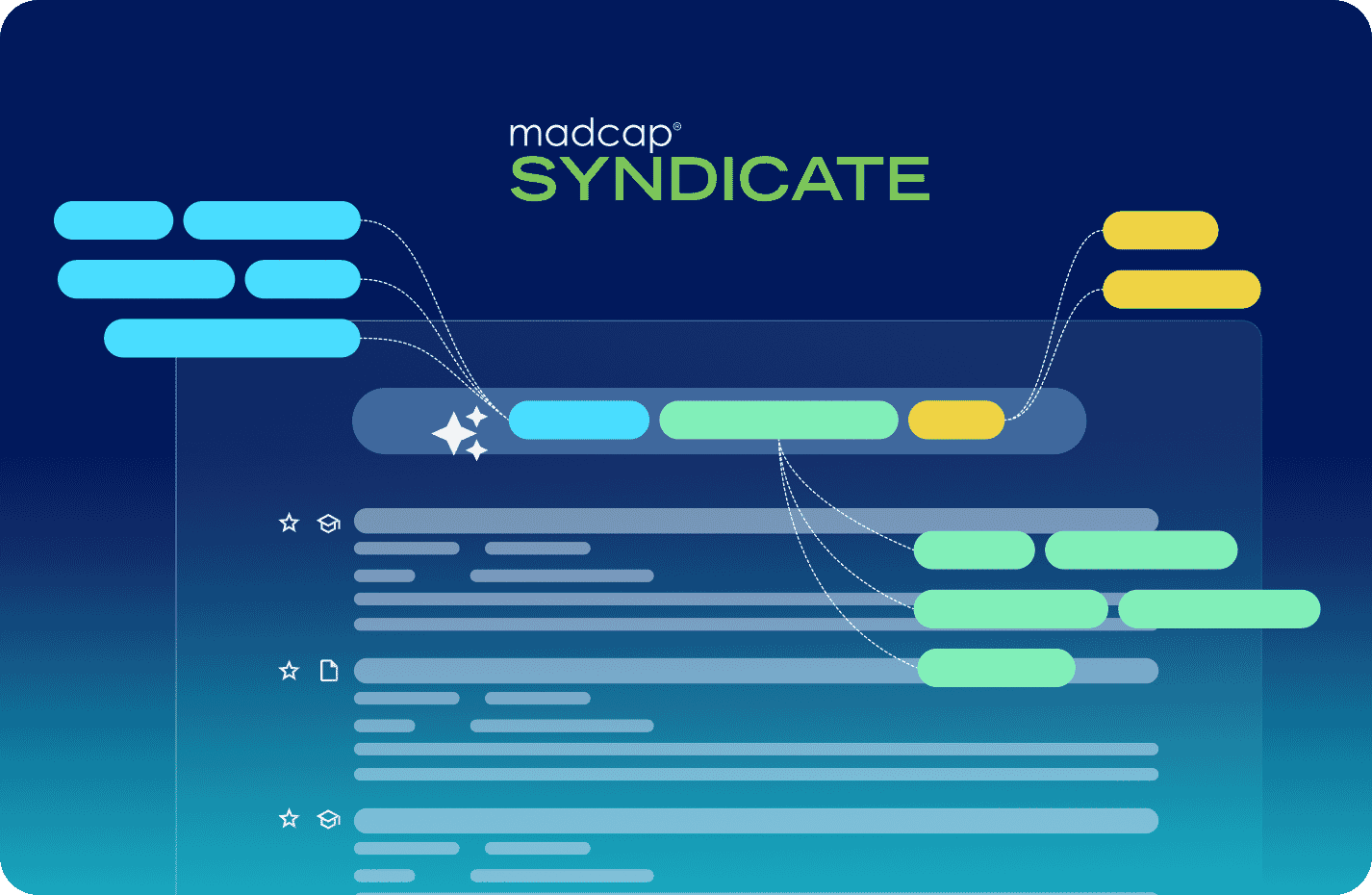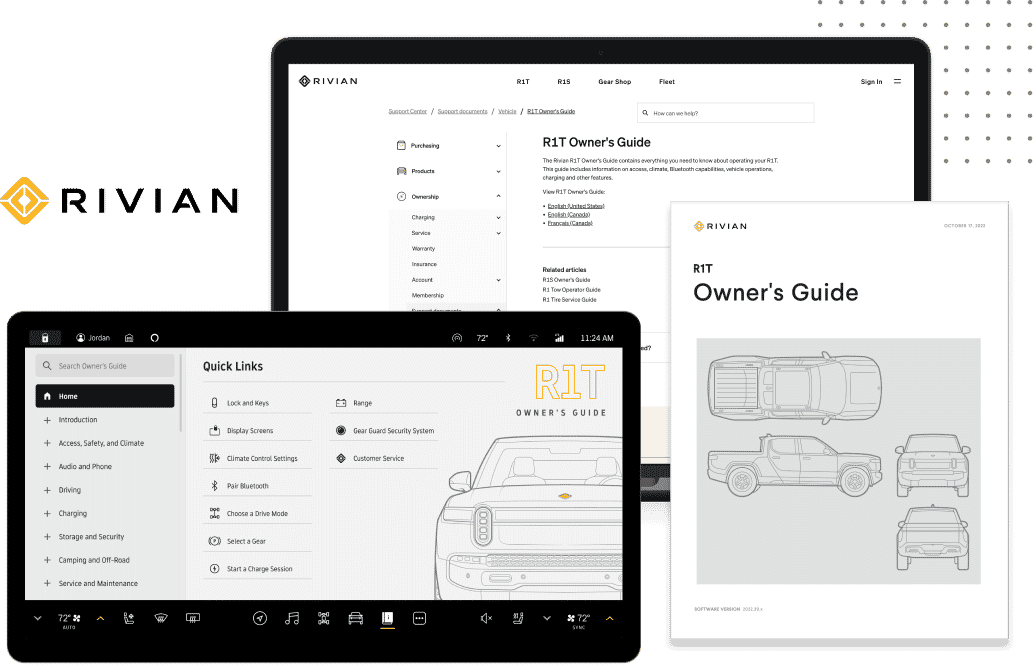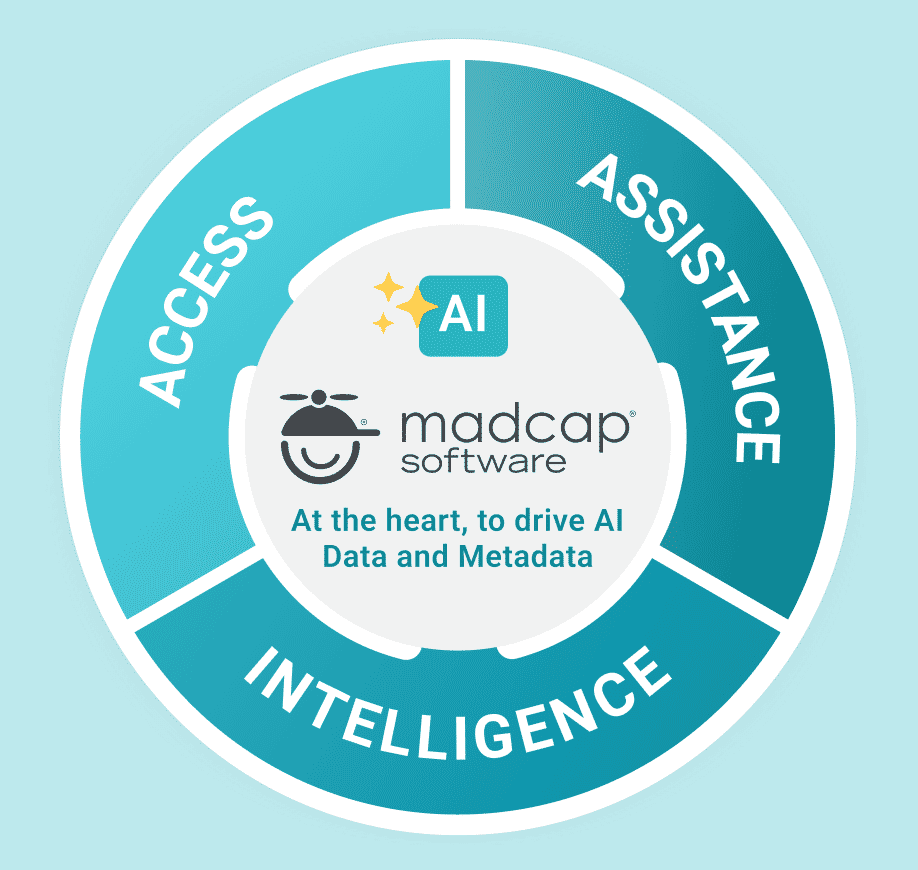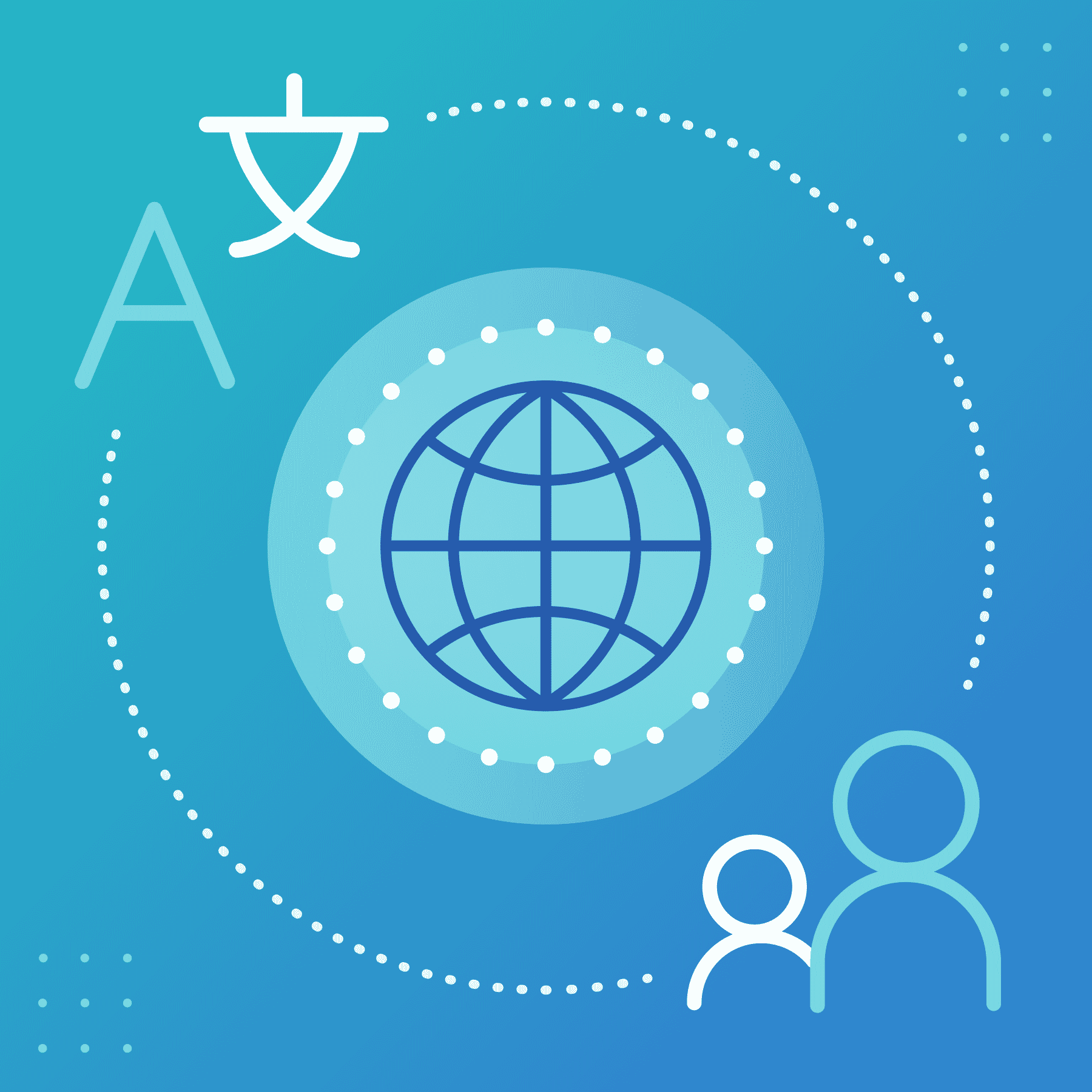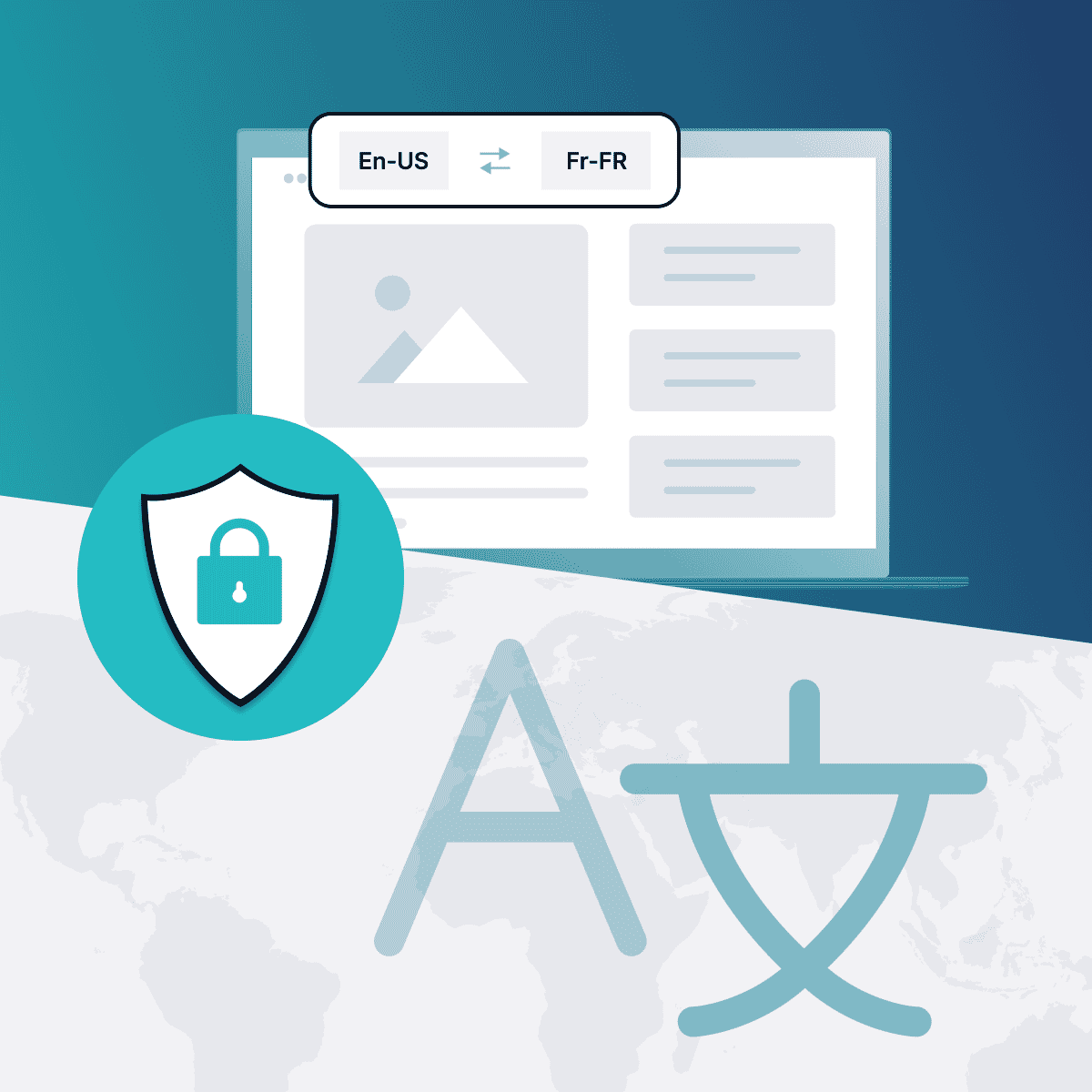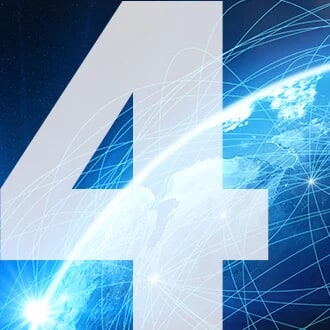Given the constant threat of ransomware and phishing attacks, every vendor your company partners with must demonstrate a clear commitment to data protection. This standard applies directly to the content you send for translation. You alone should decide who accesses your content and when.
Is your current translation provider protecting your content with the same rigor as your own organization? Here are six critical areas to assess when evaluating your translation partner’s approach to data security and ensuring secure translation services.
What is Translation Security?
Translation security refers to the safeguards, technologies, and processes that protect your content throughout every stage of translation. This includes how files are transferred, stored, accessed, and ultimately delivered across global networks and translation tools. A secure translation process ensures sensitive materials remain confidential and protected from unauthorized access or breaches.
Why Translation Security is Important
Translation security isn’t just a technical checkbox—it’s a core part of protecting your organization’s intellectual property and brand reputation. Every file sent for translation may contain proprietary information, customer data, or confidential project details. When this data passes through multiple systems, vendors, and networks, even one weak link can expose your organization to unnecessary risk. Ensuring your translation provider follows strict security standards helps prevent breaches that could compromise sensitive information or violate regulatory requirements.
Beyond compliance, secure translation workflows build trust. When you know exactly how your content is handled—from encryption to access control—you can confidently scale multilingual communication without sacrificing data integrity. A secure translation process safeguards more than just words; it protects the integrity of your documentation, the privacy of your users, and the credibility of your brand across every market you serve.
Key Components of the Translation Security Process
Each of the following areas of translation security ensures that your sensitive information remains protected throughout the translation lifecycle—from initial file transfer to final delivery.
Data Encryption in Translation Workflows
Is your translation provider encrypting your data both at rest and during transmittal? In modern translation workflows, your content rarely stays within a single office. A global network of individual translators produces the majority of translations. Your content is transmitted across the internet, potentially passing through cloud-based machine translation (MT) engines before reaching human post-editors.
To ensure comprehensive data protection, confirm the following with your chosen translation vendor.
- Secure Translation Management System (TMS): Your content should be stored in a cloud-based TMS that encrypts data in transit and at rest. This is a foundational element for protecting sensitive data in translation.
- SSL/TLS Protocols: Verify your partner uses a TMS and communication channels secured with SSL/TLS protocols for all data transmission. This is a non-negotiable standard for secure file transfer for translation projects.
- Proprietary Machine Translation Engines: If machine translation is part of their workflow, they must use proprietary, customized engines rather than publicly indexed ones. Public engines can mix your company’s data with that of other users, creating a significant exposure risk. Only private, secure MT engines can guarantee your data remains confidential.

Access Control for Secure Translation Services
Your translation partner must utilize modern access controls to safeguard your content. This includes strong passwords, multi-factor authentication (MFA), and role-based access to manage their production processes securely.
Consider how you submit data. Does your provider offer a secure web portal for file uploads? Ensure the web address begins with "https," indicating a secure connection. When you receive account access, set your own password immediately rather than using a default one.
While most corporate email systems now use encryption, you cannot assume your vendor’s infrastructure is equally secure. Don't hesitate to ask. The same applies to third-party file transfer services. If a vendor suggests using one for large files, confirm it uses "https" and complies with your company’s data protection policies.
Pro Tip: For maximum security and efficiency, use a Git-hub integration. Connecting a Git repository directly to your vendor’s TMS streamlines the flow of information and provides a superior layer of security for your documentation.
Security Awareness Training for Translation Vendors
Research from Stanford University shows that human error is responsible for 88% of security breaches. This makes security awareness training a critical component of data protection.
Check if your translation provider conducts regular training for its employees and vendors. This training should cover:
- Identifying phishing attacks and suspicious activity.
- Understanding the importance of data security in their daily work.
- Following established security protocols without exception.

How to Select a Secure Translation Vendor
The translation supply chain is long, involving individual translators, editors, proofreaders, and localization engineers. Your primary translation vendor is responsible for vetting every individual who handles your content. These professionals must be qualified, trustworthy, and committed to data security.
Simple yet effective measures your translation partner should enforce with their vendors include:
- Secure Networks: Prohibiting work over public Wi-Fi unless connections are encrypted with a VPN. Freelance translators often work from various locations, making this a crucial precaution.
- Strong Passwords: Requiring strong, unique passwords on routers and work devices.
- Robust Antivirus: Mandating the use of robust anti-virus and anti-phishing software.
- Dedicated Workstations: Ensuring vendors use computers dedicated to work and not shared with other household members.
These measures are straightforward to communicate during vendor onboarding and represent a foundational commitment to security.
Hold Your Translation Partner Accountable
The security measures outlined here are common sense in the corporate world. As a translation buyer, your role is to hold your partners to these standards. At a minimum, your diligence will reinforce the importance of data security. More importantly, it can move a complacent provider to action, ensuring your valuable content remains protected at every stage of the translation lifecycle.
Seeking a translation partner that prioritizes security? Contact us to discover how our industry-leading translation management practices, including data encryption, access control, and compliance, can safeguard your sensitive content.
